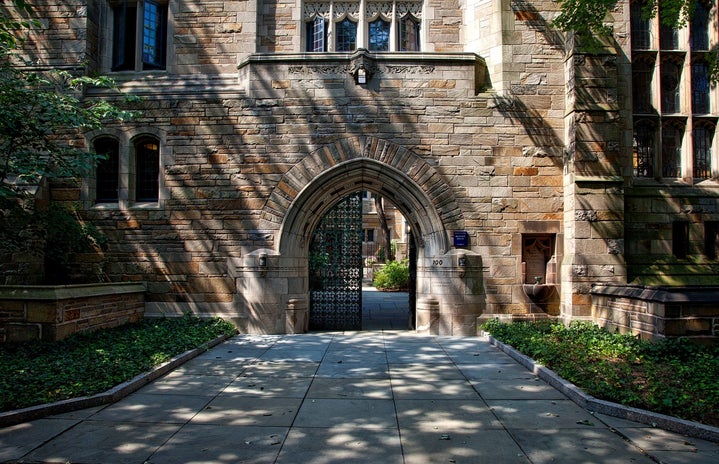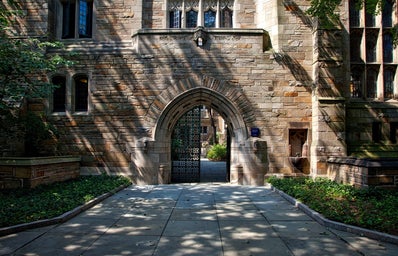When discussing the possibility of making tuition for American public colleges and universities free, one must ask themselves this crucial question—is education a human right? For every country outperforming the U.S. in education, the answer is yes.
Countries such as Finland, whose school system ranks #1 in the world, and Germany, whose free tuition applies to anyone who wishes to attend their universities, have been challenging our idea of what education, especially higher education, should be.
What do all these countries have that the U.S. doesn’t? As Stephen Lurie from The Atlantic puts it, “a constitutional, or statutory guarantee of the right to education.” Essentially, it is law for them to provide their citizens with the same educational opportunities for all.
Some may argue that a constitutional right to education does not exist in the U.S. because it’s ingrained in our society already. In a message for American Education Week, FDR said this:
But does today’s America still value the role education plays in a healthy democracy?
Rising tuition rates and cuts in state funding for education suggest that no, Americans have lost sight of how integral a highly educated, young population is to the growth of our society and our economy.
It turns out that more than 40 million Americans are holding $1.3 trillion in student loan debt, with three out of four college students borrowing money and averaging $30,000 each. Here’s a video to help you wrap your mind around just how much money that is:
Just this past academic year, average tuition, fees, and room and board at a private, non-profit, four-year college were $42,419 and $18,943 for tuition at public, four-year schools according to the College Board in a report from CNBC. Here at UMass, tuition, fees, and room and board for in-state undergrads went up 6% from 2014-15 to 2015-16, now costing $25,674, and $42,007 for out-of-state students with an increase of 5.6% from last year.
These tuition hikes are not sustainable for the majority of the American population, and so you may be asking yourself, why are these hikes happening at such an alarming rate? Researchers say that deep budget cuts in state and local funding for public higher education as well as dwindling subsidies at private schools are the reason.
These cuts in funding not only affect us students, but they also affect the quality of our education. In response to a cut budget, many schools are replacing their tenured faculty with non-tenure track faculty. This may not seem like a huge deal, but research has shown the negative outcomes of decreased student to faculty interaction: the lack of effective teaching practices by non-tenure-track faculty which result in poorer student-learning outcomes, and a correlation between declining graduation rates and increasing non-tenure-track faculty.
And if that’s not enough for you, campus administrators, with less and less funding, are turning to wealthy corporations and individuals for support. Two right-wing billionaires, Charles and David Koch, spent $68 million from 2005 to 2013,“funding the kinds of programs they wanted on 308 U.S. college and university campuses.”
So, with the price of college increasing exponentially, student debt skyrocketing, and the quality of faculty being bought out by billionaires, many of us are wondering if the tuition-free public college education being discussed this election season could ever be a reality.
Up until fairly recently, all public colleges or universities were free or virtually free. Abraham Lincoln passed the Morrill Act in 1862, “establishing land-grant public colleges and universities on a tuition-free basis.” For just about a century after, many public colleges and universities charged no tuition or a nominal fee for entry. The University of California system, established in 1868, remained tuition free until the 1980’s—that’s more than a century’s worth of students getting a free college education!
Charging tuition, as hard as it is to believe, is something fairly new to America’s higher education system.
So we have done it before, why can’t we do it again? Right now there are at least 44 schools across Europe that offer free bachelor’s degrees not only for their students, but any American student that wishes to attend—and many students are taking advantage of that opportunity. Why are we forcing our students to seek their education elsewhere?
Many of these countries in Europe realize that by making college tuition free, they are providing educational opportunity for all. In doing this, they have access to the best minds, regardless of economic status. If America were also to adopt (or readopt shall we say) tuition-free public higher education, then we could compete with these European nations and avoid the risk of our educated youth permanently moving overseas.
Now I’m sure you’re wondering how the government could possibly get enough money to fund free tuition at our public institutions, right? Well, I’ll leave it to our wonderful Senator Elizabeth Warren, to explain just how much the government could significantly reduce student loan debt:
While Warren is addressing and fighting our debt issues, the government is “already spending enough money on financial aid each year to cover the annual tuition bill for every undergraduate and graduate public college student in the country. Don’t believe me? Check it out:
The money is there to give each and every student an affordable education.
Even Donald Trump (or should I say Drumpf?) agrees with Sen. Warren on not profiting off of students—which is incredible.
He’s quoted agreeing with arguably one of the most liberal politicians saying, “That’s probably one of the only things the government shouldn’t make money off–I think it’s terrible that one of the only profit centers we have is student loans.”
Both ends of our political spectrum seem to agree then that the increasing price tag of college and the rapid increase of student debt are major issues facing the future of our country. Congress still hasn’t warmed up to any of Warren’s ideas on the subject, but with pressure from us (the ones most affected by this issue) we can get our government to start backing its students, not its billionaires.
Photos/Videos: 1, 2, 3, 4, 5, 6, 7, 8, 9, 10, 11, 12, 13, 14


